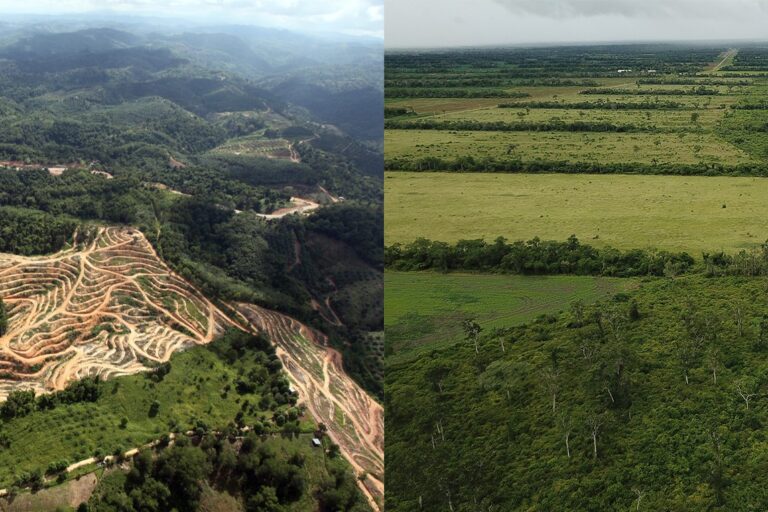The European Union’s landmark anti-deforestation law could fail to deliver on its environmental promises if enforcement authorities disproportionately focus on small importers while missing less obvious violations from major commodity firms, according to a new analysis by U.K.-based investigative nonprofit, Earthsight. The EU Deforestation Regulation (EUDR), which comes into force Dec. 30, 2025, aims to prevent new tropical deforestation from Europe’s supply chains for soy, beef, palm oil and other commodities. To do so, it will require geolocalized data from indirect and direct suppliers that prove their products didn’t contribute to deforestation since December 2020. The largest importers “will submit due diligence statements accurately and on time. They will have due diligence systems in place. They will have correctly identified risks. They will have traceability systems of some kind in operation,” the report’s authors write. “The problems with these importers will lie deeper. Their mitigation measures will be weak. Their traceability systems will have fundamental flaws, but these will be well hidden,” they added. In February, Cargill, one of the largest exporters of soy from Brazil’s Amazon Rainforest and Cerrado savanna, took advantage of the EUDR to weaken already existing anti-deforestation agreements. The agribusiness pushed up its deforestation cutoff date from 2008, the year established by the soy moratorium, to 2020, the cutoff date set by the EUDR. That would allow the company 14 more years of deforestation without consequence. “There is good reason to be mistrustful of such firms,” Earthsight’s analysis writes. “Unfortunately, there are reasons to fear they…This article was originally published on Mongabay
Search
Recent Research
Want your Blog Article featured on our website?
Research
Featured News
Explaining Katsina’s Massive Leap to 2nd Position in the 2025 Climate Governance Ranking
In 2024, during the first edition of the Subnational Climate Governance Performance Rating and Ranking,
COP30: Firm to connect institutions with international climate finance opportunities
SISTME, a climate change and biodiversity conservation consulting firm based in Argentina, has offered to
From resistance to planetary governance, Indigenous women redefine global climate action
While world leaders negotiate behind closed doors in the Blue Zone of COP30, Indigenous Women
Sahara Group Foundation launches 16th Sahara Go Recycling Hub to boost environmental sustainability, economic empowerment
Sahara Group Foundation, the corporate social impact arm of Sahara Group, has commissioned its 16th
Climate finance is the lifeblood of climate action – Simon Stiell at COP30
Remarks delivered by UN Climate Change Executive Secretary, Simon Stiell, at the third High-Level Ministerial
UNDP, REA, GEF commission Plateau solar mini-grid to power agricultural value chains, empower rural communities
The United Nations Development Programme (UNDP), in partnership with the Rural Electrification Agency (REA) and
COP30: Africa urges world leaders to turn pledges into action
Africa has called on the world leaders to turn their pledges into action regarding the
Thousands join global marches calling on govts at COP30 to deliver climate justice
An estimated 30,000 people marched through the Brazilian city of Belém on Saturday, November 15,


